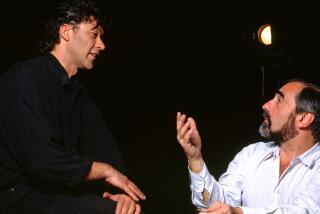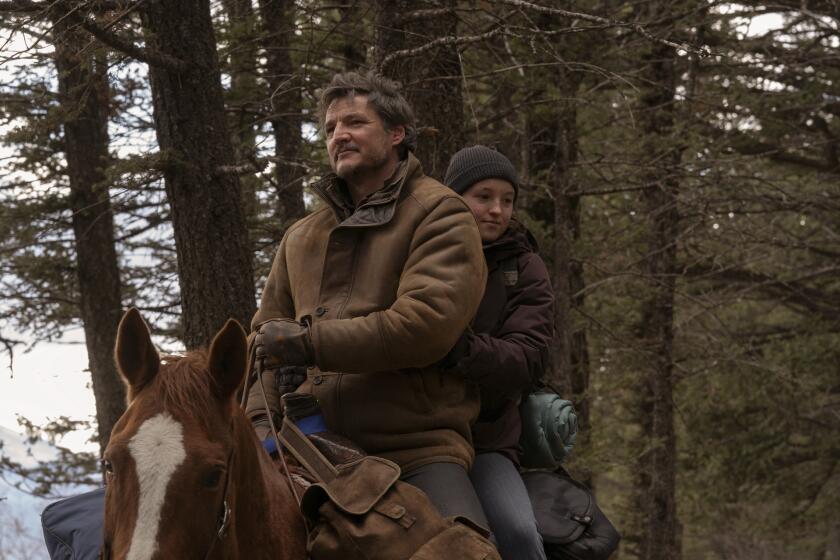The Scores: Reznor feels at home with ‘Dragon Tattoo’
- Share via
Trent Reznor and Atticus Ross | “The Girl With the Dragon Tattoo”
Early in the process for scoring “The Social Network,” hard rock veterans Trent Reznor and Atticus Ross confessed to feeling out of their element.
Sitting recently on his Beverly Hills porch, Reznor recalled, “That wasn’t the type of film I thought I knew how to score. It’s not the film I would have chosen had I set out to score a film.”
Reznor and Ross eventually figured it out, as the digital, atmospheric accompaniment to “The Social Network” won the Oscar for original score. By then, Reznor and Ross were already multiple months into their follow-up in the film world, working once again with director David Fincher, this time on “The Girl With the Dragon Tattoo.”
It would appear to be right in the aggressive wheelhouse for Reznor and his frequent Nine Inch Nails collaborator Ross. “I started thinking, ‘Finally! Now there’s serial killers, tension, anal rapings and stuff like that,’” Reznor said.
Yet despite this film’s more obvious mood than the language-heavy “Social Network,” or maybe because of it, Reznor worried that the music might feel “one-dimensional, emotionally.” He and Ross cleared their schedules, devoting 14 months to the music for the film, which has a whopping 2 hour, 37 minute running time.
“There was an experimentation with familiar -- almost orchestral-sounding -- things but treated in an unusual way,” Ross said. “Beyond that, it became experimentation in the notion of space. Without that sounding too pretentious, it was simply spacial experimentation, in which it feels like there’s a depth.”
Reznor recalled visiting the film’s Sweden set, with Fincher walking him around the town and explaining that he wanted elements of the environment to be in the score -- a church bell, for instance. Fincher dictated no orchestra and asked for what Reznor described as “odd, harmonic, embellished-type moments.” The end result is a score that at times feels alive in that the more dramatic parts feel as if they’re worming their way into the city rather than reflecting it.
“There’s a scene where a character walks out of a room, and something pretty uncomfortable happens,” Reznor said. “It segues into the sound of a floor buffer, which is the same key. The score and the sound design feel as a whole.
“That takes us out of the world of grand, sweeping melodies,” Reznor continued. “This isn’t a soundtrack that’s filled with ‘Star Wars’-esque theme songs.”
More to Read
The biggest entertainment stories
Get our big stories about Hollywood, film, television, music, arts, culture and more right in your inbox as soon as they publish.
You may occasionally receive promotional content from the Los Angeles Times.











